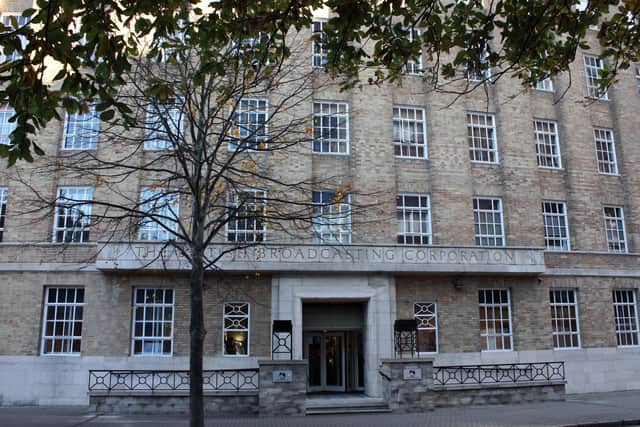BBC reveals plans to ensure fair and unbiased content


The move comes in response to the publication of the Serota Review into governance and culture at the broadcaster, which was published on Friday and made a number of recommendations on improving editorial standards.
The recommendations have been accepted by the broadcaster.
The review, led by Arts Council England chairman Sir Nicholas Serota, says the organisation “needs to do more to embed editorial values into the fabric of the organisation”.
Advertisement
Hide AdAdvertisement
Hide AdIt added that “a number of those we interviewed felt that individuals, including high-profile and senior staff, have not always been held to account for breaching editorial standards”.
Sir Nicholas said in a statement: “There is no doubt the BBC is a very different place to that of 25 years ago and, thankfully, progress has been made. Nevertheless, there is an opportunity for the BBC leadership team to go further and ensure that accuracy, impartiality, fairness and integrity are embedded more deeply across the organisation.
“The BBC can and should be properly held to account against these core values and standards. This can only be achieved through improved transparency and openness, both internally and externally.
“We have every confidence the BBC leadership understands this and also the very real need to deliver these improvements on behalf of audiences.”
Advertisement
Hide AdAdvertisement
Hide AdThe review was commissioned by the BBC board following Lord Dyson’s scathing report into the circumstances surrounding Martin Bashir’s 1995 Panorama interview with Diana, Princess of Wales.
The Serota Review said the risk of editorial standards being circumvented by staff “has been reduced significantly in the last 25 years”. However it found that some investigations into potential rule breaches “were too slow to gather the facts, leaving staff to manage hostile media and audience reaction”.
The BBC unveiled a 10-point action plan in response to the report, which includes extending impartiality training throughout the organisation. It also recommends the BBC’s board monitors impartiality through metrics including editorial complaints.
Staff should also be made aware that failure to comply with editorial values will result in disciplinary action or dismissal the report said.
Advertisement
Hide AdAdvertisement
Hide AdManagers should also be “challenged to represent audiences from all parts of the UK, both on and off screen” as part of a diversity plan, it added.
The report also highlighted that previous director-generals “have intervened and made a determination on whether the editorial guidelines have been breached”.
It said such interventions are “in line” with the job of the director-general, but there has not always been “clarity”.